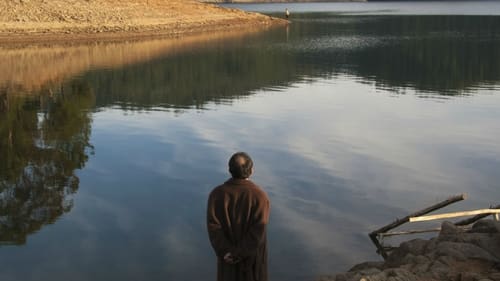
Director
A car aficionado, filmmaker Paulo Carneiro travels 2000 kilometres to meet car enthusiasts of the Portuguese community in exile. In a pop and urban universe, Périphérique Nord explores this shared passion and the freedom it provides for these exiled persons who seem to finally find (once again) a territory of their own.

Producer
In a remote village called Bostofrio, a young filmmaker breaks the law of silence in order to unearth the story of his grandfather. A series of awkward and funny interviews that reveal the secrets and half truths that are the fabric of rural Portugal.

Editor
In a remote village called Bostofrio, a young filmmaker breaks the law of silence in order to unearth the story of his grandfather. A series of awkward and funny interviews that reveal the secrets and half truths that are the fabric of rural Portugal.

Writer
In a remote village called Bostofrio, a young filmmaker breaks the law of silence in order to unearth the story of his grandfather. A series of awkward and funny interviews that reveal the secrets and half truths that are the fabric of rural Portugal.

Director
In a remote village called Bostofrio, a young filmmaker breaks the law of silence in order to unearth the story of his grandfather. A series of awkward and funny interviews that reveal the secrets and half truths that are the fabric of rural Portugal.

Editor
Lucy, regarded as crazy, has a son.

Line Producer
Certainly an outstanding case of beauty and mystery, this short film by Mozos creates a strange alloy of literature and cinema, and not in the way one discipline is a vampire for the other, but rather as if they were the different faces of the same coin, drawn to coexist and repel each other. As if every film belonged to a lonely species, Ashes and Embers shows a unique arrogance as it trembles, somewhat defenseless, with no certainty that the folds of fiction constitute any kind of survival guarantee for such strange objects. Memory and ghosts are two words that are easily said, but in this singular and very refined film they seem destined to become the ultimate goal of cinema, and its most endurable desire.

Editor
In mid-summer 2011, Paulo Carneiro and set out as assistant director for a film crew working on a project on the west African coast. There he unexpectedly ended up shooting his own film, a documentary report about a sinking ship near the coast of Guinea-Bissau on which he was a passenger. The digital camera records the growing panic on the ship after it has gotten stuck in the ocean in an oppressive nighttime atmosphere. In shaky interview footage, we see passengers move from an initial apathy to nervous anxiety, and from there fluidly to a fear for their lives. The growing tension on board is reflected in the film's ever quickening tempo.

Cinematography
In mid-summer 2011, Paulo Carneiro and set out as assistant director for a film crew working on a project on the west African coast. There he unexpectedly ended up shooting his own film, a documentary report about a sinking ship near the coast of Guinea-Bissau on which he was a passenger. The digital camera records the growing panic on the ship after it has gotten stuck in the ocean in an oppressive nighttime atmosphere. In shaky interview footage, we see passengers move from an initial apathy to nervous anxiety, and from there fluidly to a fear for their lives. The growing tension on board is reflected in the film's ever quickening tempo.

Producer
In mid-summer 2011, Paulo Carneiro and set out as assistant director for a film crew working on a project on the west African coast. There he unexpectedly ended up shooting his own film, a documentary report about a sinking ship near the coast of Guinea-Bissau on which he was a passenger. The digital camera records the growing panic on the ship after it has gotten stuck in the ocean in an oppressive nighttime atmosphere. In shaky interview footage, we see passengers move from an initial apathy to nervous anxiety, and from there fluidly to a fear for their lives. The growing tension on board is reflected in the film's ever quickening tempo.

Director
In mid-summer 2011, Paulo Carneiro and set out as assistant director for a film crew working on a project on the west African coast. There he unexpectedly ended up shooting his own film, a documentary report about a sinking ship near the coast of Guinea-Bissau on which he was a passenger. The digital camera records the growing panic on the ship after it has gotten stuck in the ocean in an oppressive nighttime atmosphere. In shaky interview footage, we see passengers move from an initial apathy to nervous anxiety, and from there fluidly to a fear for their lives. The growing tension on board is reflected in the film's ever quickening tempo.

Director
Letter from a son to a mother.









